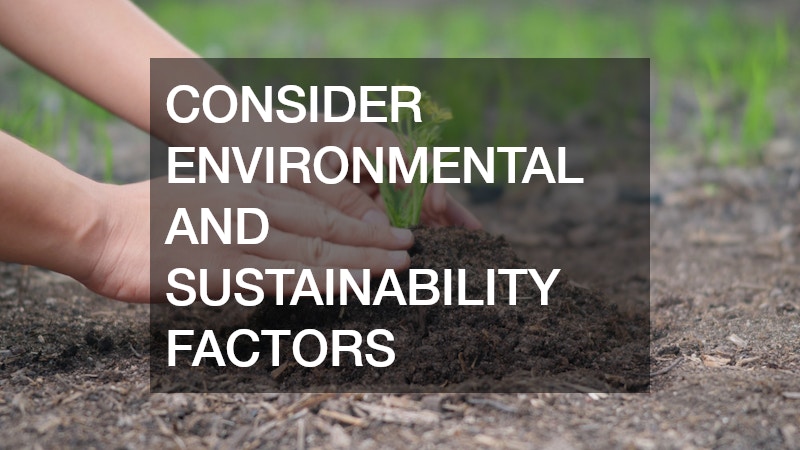What to Do After You Buy Land
When you buy land, it marks an exciting milestone toward building your dream home, starting a business, or securing an investment for the future. However, understanding the next steps can be daunting. This guide outlines essential considerations to help new landowners make the most of their purchase and set their property up for long-term success.
RESEARCH ZONING LAWS AND RESTRICTIONS
Before you begin any development, it’s vital to research local zoning regulations. These vary between councils and can affect what you can build or how you can use your property. Understanding these laws ensures your development plans comply with all requirements and avoids unnecessary setbacks.
Local zoning rules can influence everything from building height to permitted land use. Failing to comply may lead to fines or costly delays. Taking time to verify your zoning classification early on helps align your vision with legal boundaries, protecting your investment after you buy land.
CONSULT A LAND USE LAWYER
Working with a land use lawyer is highly recommended, especially if you’re new to property ownership. These professionals can interpret complex zoning laws, clarify your rights, and help prevent disputes with neighbours or local authorities. Legal guidance offers peace of mind, ensuring all developments comply with regional laws and regulations. When you buy land, having professional legal advice early in the process can save significant time and expense later.
SURVEY AND MARK YOUR PROPERTY
Hire a Licensed Surveyor
Engaging a licensed surveyor is crucial to determine the exact boundaries of your land. Accurate surveying helps prevent disputes, supports building approvals, and provides a clear foundation for your development plans. Professional surveyors use precise equipment to map out your property, giving you an accurate reference for future projects and any potential sales.
Install Boundary Markers
Once the survey is complete, install visible boundary markers to physically define your property lines. These markers are invaluable for preventing encroachments and maintaining good relationships with neighbouring landowners. Establishing clear boundaries is an essential safeguard when you buy land and plan to build or subdivide in the future.
CHECK ACCESS AND AVAILABLE UTILITIES
Road Access and Easements
Before you start construction, confirm that your land has legal and practical access to public roads. Check for easements or shared driveways that may affect entry or utility installation. Poor access can limit your property’s functionality and decrease its overall value. Reviewing access details ensures smooth logistics during development and ownership.
Utilities and Infrastructure
Investigate the availability of essential utilities such as water, electricity, sewage, and telecommunications. Some rural properties may lack direct connections, requiring additional investment in infrastructure. Contact your local council or utility providers to determine connection points and associated costs. Factoring in these expenses early can help you plan effectively and avoid surprises later on.
PLAN YOUR LAND USE AND DEVELOPMENT
Set Clear Goals
Clarify how you intend to use your land — residential, commercial, agricultural, or mixed-use. Your objectives will guide all future planning and financial decisions. Aligning your land use goals with zoning laws and local demand ensures that your investment grows in value and purpose. When you buy land, setting a clear direction early helps streamline the approval process and development timeline.
Develop a Detailed Plan
Create a detailed development plan outlining your vision, including timelines, budgets, and required approvals. A well-structured plan keeps projects on track and facilitates better coordination with builders, contractors, and consultants. Regular updates to this plan allow flexibility as your goals evolve or market conditions shift.
CONSIDER ENVIRONMENTAL AND SUSTAINABILITY FACTORS
Conduct Environmental Assessments
Environmental assessments identify how your development may affect the surrounding ecosystem. These studies help you design sustainable projects that minimise harm to local wildlife, vegetation, and waterways. They also keep you compliant with environmental regulations, avoiding potential legal and financial setbacks.
Adopt Sustainable Building Practices
Incorporating sustainable principles into your development adds long-term value and appeals to environmentally conscious buyers. Consider renewable energy options, water-efficient landscaping, and eco-friendly construction materials. Responsible development reflects your commitment to sustainability and contributes positively to the broader community.
Owning property is both an achievement and a responsibility. After you buy land, taking time to research, plan, and seek professional advice helps you make informed choices that support your goals. From understanding zoning laws and surveying to securing access and promoting sustainability, each step contributes to a more rewarding ownership experience. By approaching land development strategically, you can turn your purchase into a valuable long-term asset that continues to grow over time.

